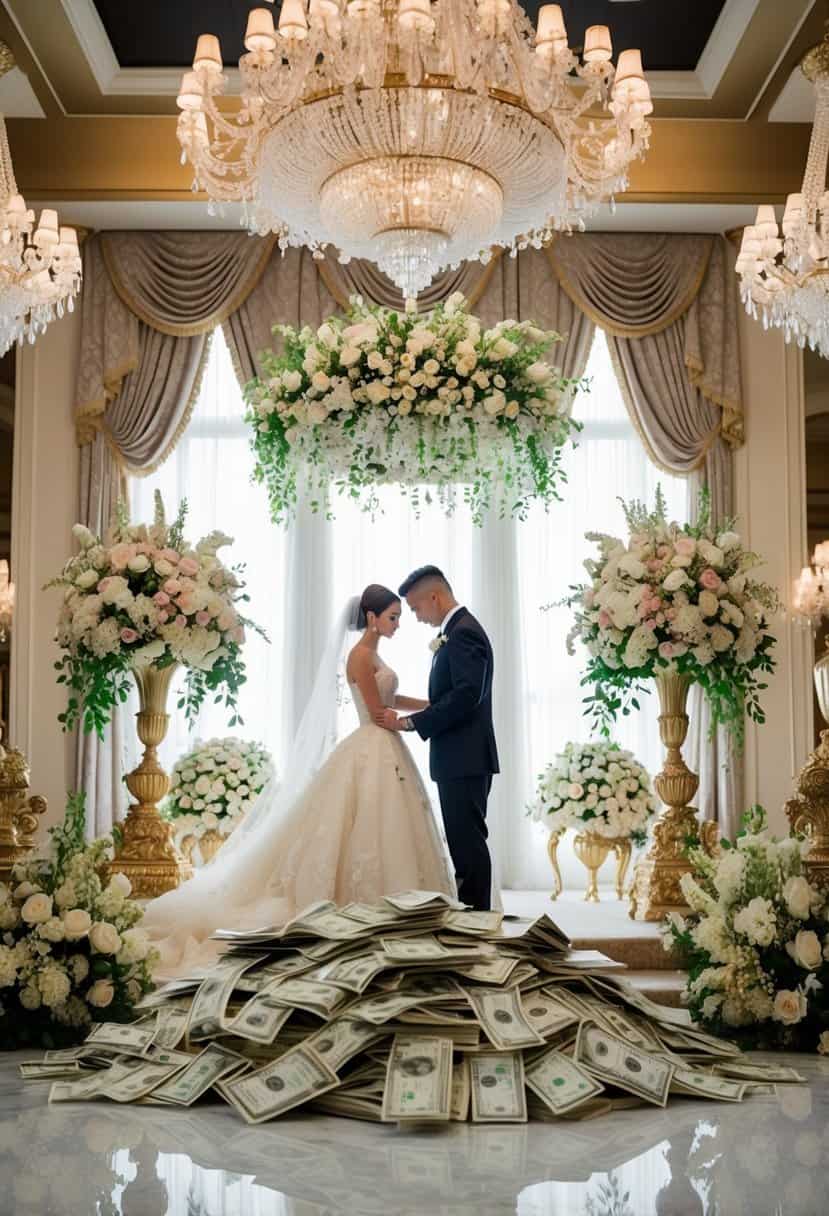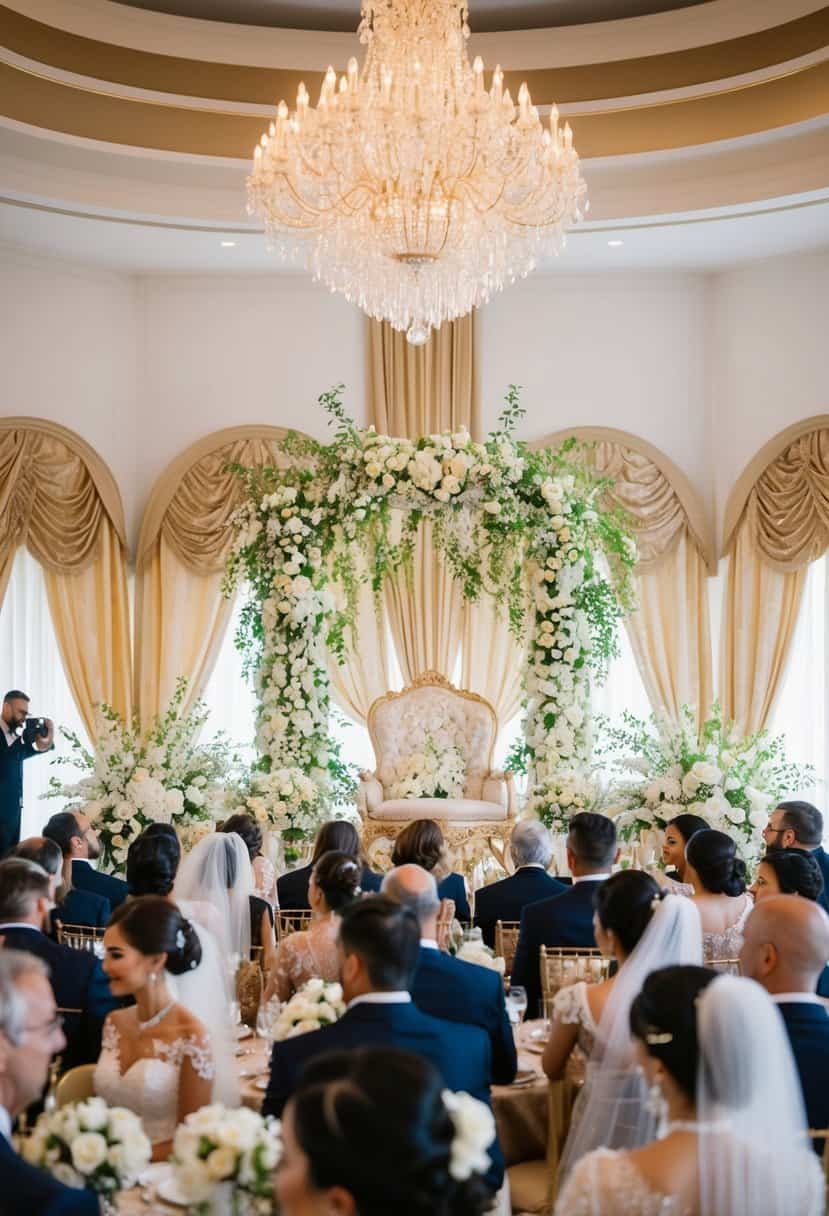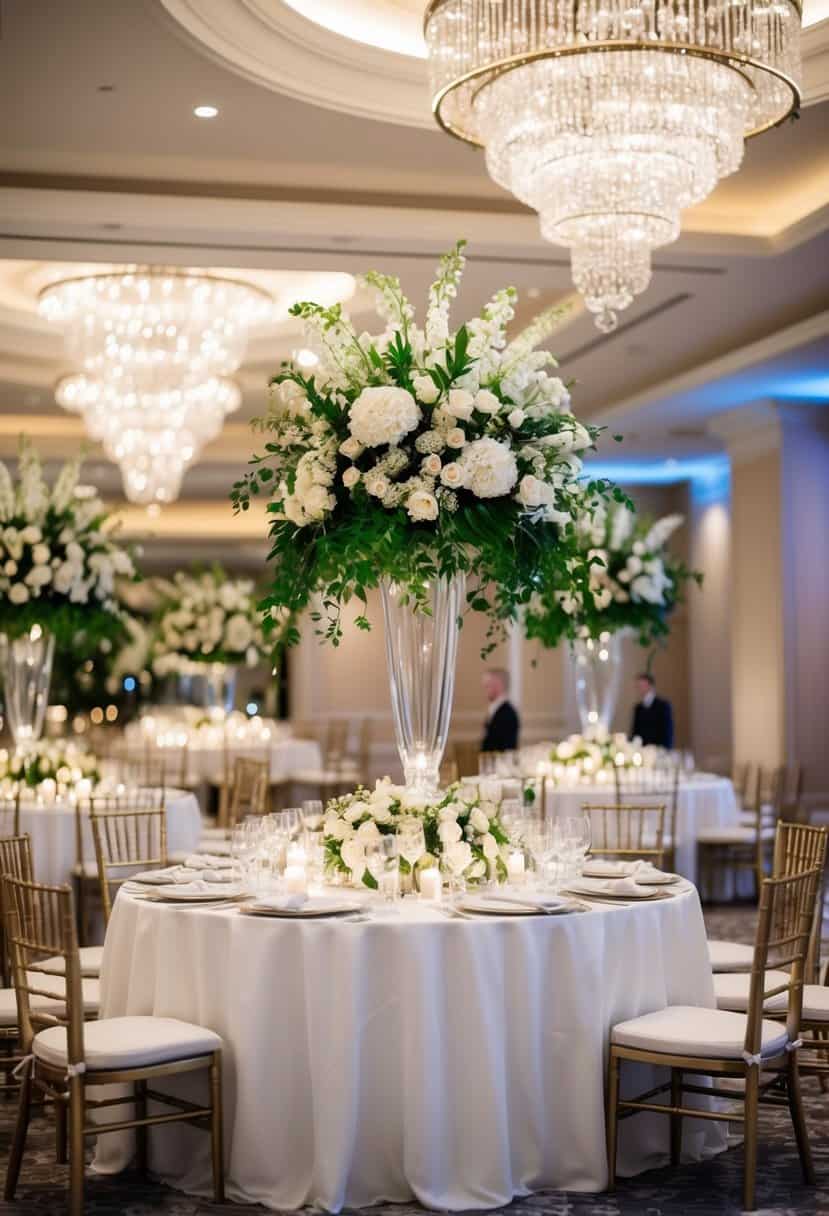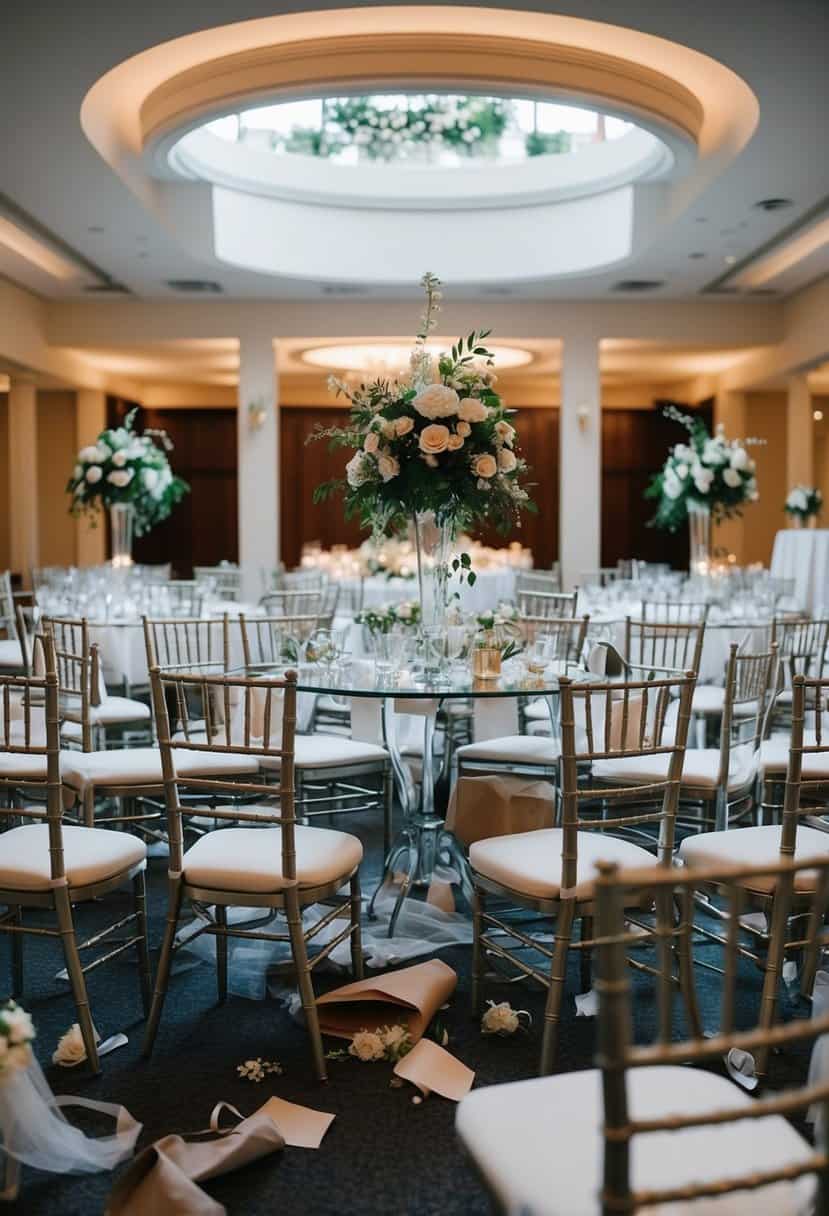What are the Disadvantages of Expensive Weddings? A Friendly Perspective
Planning an expensive wedding might seem like a dream come true, but there are downsides that can turn this dream into a stressful experience. The biggest disadvantage of an expensive wedding is the financial burden it places on you and your partner. From lavish venues to costly decorations, the expenses add up quickly, potentially leading to regrets down the line.

Diving into the world of extravagant weddings can also bring about decision overload. You’ll find yourself juggling numerous choices to match the grand vision, which can become overwhelming. The wedding industry often pushes for bigger and more expensive options, which can make it hard to stay within a budget.
Moreover, an expensive wedding doesn’t always guarantee lasting memories. The pressure to host a perfect day might shift your focus away from what truly matters—celebrating your love with family and friends. By understanding the true cost of luxury weddings, you can decide what’s right for you without losing sight of the joy such an occasion should bring.
Financial Implications
Getting married is a big step, but an expensive wedding can create several financial challenges. It’s easy for the cost of a dream wedding to spiral, affecting your savings and future plans like your honeymoon.
Strain on Personal Finances
An extravagant wedding often leads to significant financial stress. With the average wedding cost reaching thousands of dollars, this expense can deplete your savings. You may end up dipping into emergency funds or taking out loans, which can create a heavy financial burden.
When planning your budget, keep in mind that wedding costs extend beyond just the venue and food. Small details like flowers, attire, and invitations add up quickly. Ensuring that you stick to a realistic budget not only helps manage expenses but also provides peace of mind.
Splurging might seem tempting, but remember that financial stability is crucial for your future together. Consider whether the short-lived lavishness of a wedding is worth the long-term impact on your financial health.
Hidden Costs and Expenses
Many people underestimate how quickly hidden costs can pile up. While big-ticket items like the venue are obvious, there are numerous other expenses that can catch you by surprise. This includes things like service fees for vendors, gratuities for staff, or last-minute decorations.
It’s common for couples to miss these unexpected costs in their budget planning. Failing to plan accurately can result in overspending, potentially driving you into debt before the ceremony concludes.
Make sure to list every potential expense, no matter how small, to maintain control over your financial investment. Stay organized and proactive, keeping track of every purchase to avoid unpleasant surprises.
Impact on the Honeymoon Budget
An expensive wedding often leads to cuts in other areas, and your honeymoon is usually the first to feel the pinch. Downgrading from a luxurious honeymoon suite to simpler accommodations can affect your overall wedding experience.
Discussing your priorities as a couple can help decide whether a lavish wedding is worth sacrificing parts of the honeymoon. Perhaps you’d prefer to create lasting memories by traveling rather than stretching your finances too thin for an elaborate celebration.
Choosing how to allocate your resources can significantly shape your first days together as partners. Prioritizing these discussions helps align your financial goals with what truly matters to you.
Guest List Dynamics

Planning your wedding’s guest list can be a challenging task. Inviting everyone you know might lead to complications and costs that can be overwhelming. Handling a large guest list and feeling obligated to invite distant relatives are two significant concerns.
Managing a Large Guest List
When you decide to have a large wedding, managing the guest list becomes crucial. A large number of guests can significantly increase costs for catering, seating, and favors. You might want to celebrate with everyone, but this can strain your budget.
Organizing such events requires logistics, such as seating charts and coordinating meal preferences. Prepare by staying organized and possibly hiring a wedding planner to coordinate the details. Also, consider trimming the list by focusing on people who have been genuinely part of your life recently.
The Pressure to Invite Distant Relatives
The pressure to invite distant relatives can be a real challenge. You might feel obligated to include them due to family expectations or previous invitations to their events. This can increase your guest count and budget significantly.
It’s important to weigh the costs and benefits of inviting relatives you haven’t seen or interacted with in years. Start by listing people you genuinely want to be there. Discuss the options with your partner and close family members, and consider how their presence adds to your day.
By closely examining each part of your guest list, you can manage who you truly want to share such a personal moment with.
Logistical Considerations

Expensive weddings often involve intricate logistics that can add stress to the planning process. This includes managing complex arrangements and choosing the right venue.
Coordinating Complex Arrangements
When planning a big wedding, coordination becomes a key task. You might hire a wedding planner to help manage the many moving parts. Hiring a planner can greatly ease your worries, as they typically handle everything from vendor coordination to scheduling.
Picture this: you need to arrange accommodations for out-of-town guests and ensure transportation for the bridal party. Travel arrangements can be an intricate puzzle, especially if you have a large guest list.
Tech tools can be a lifesaver here. Consider using tools that allow you to create detailed schedules or apps to send updates. Keeping track of these logistics is crucial to prevent unexpected issues on the big day.
Selecting an Appropriate Venue
Choosing a wedding venue is not just about the location; it’s about accessibility and suitability. Expensive weddings often demand venues that provide extra amenities and exclusive services.
If you have a large guest list, make sure the venue can accommodate everyone comfortably. Some venues offer in-house catering and decoration options, which can simplify planning. Others might require separate vendors for each service.
When you select a venue, consider accessibility for all guests. Venues with ample parking or shuttle services can help make the day smoother for everyone. Also, it might help to pick a venue that is close to hotels or transportation hubs, especially if you are hosting a destination wedding. For example, destination weddings come with unique challenges, including travel logistics and guest accommodations.
The Emotional Cost

Expensive weddings often bring stress and anxiety due to financial pressures and expectations. They can also lead to family conflicts over decisions and budgets.
Stress and Anxiety
Planning a wedding can be overwhelming, especially when costs skyrocket. You’re under pressure to make everything perfect, which often includes choosing the right venue, flowers, and attire.
Financial strain adds to the stress. Many people worry about how they will pay for everything, which can lead to tension between you and your partner. This stress can also impact your relationship and affect how you enjoy your wedding day.
With so many details to manage, decision fatigue can set in. This makes it harder to enjoy the process and focus on what truly matters.
Potential for Family Conflicts
Family conflicts are common when planning pricey weddings. Budget disagreements can cause tension, especially if family members are contributing financially. Different opinions on traditional vs. modern elements can create friction, leading to disagreements.
Budget discussions often highlight different financial priorities, causing arguments over who pays for what. This can lead to long-term stress in family relationships. Additionally, different expectations on the guest list can cause rifts as well.
It’s important for you to communicate openly to manage these challenges. Setting clear boundaries and expectations can help ease potential conflicts and make your planning experience smoother.
Aftermath of the Big Day

Once the wedding celebration ends, the focus often shifts from the ceremony itself to the realities of married life. Couples may find themselves reconsidering the emphasis placed on the big wedding day compared to their marriage.
Overemphasis on One Day Instead of Marriage
Planning for a big wedding can consume a lot of time and energy. You might find that the excitement of the wedding size overshadows what truly matters—your marriage. Sometimes, in trying to have an extravagant wedding, the actual relationship takes a backseat.
Much of society pushes the idea that a grand ceremony is essential, which may lead you to prioritize a one-day event over a lifelong partnership. Smaller weddings can sometimes help bring focus back to strengthening your relationship, allowing you to celebrate with loved ones while keeping your priorities straight.
Post-Wedding Blues and Regrets
After all the excitement fades, couples might experience some level of post-wedding blues. Once the thrill of the wedding is over, you might feel down. It’s a real issue and can lead to second-guessing decisions made during wedding planning.
Some couples might even regret choices that added stress, like opting for a larger or more expensive celebration. If you’ve put too much focus on the event itself, living with these decisions can dampen the joy of your new life together. Prioritizing experiences that matter can help reduce such regrets and improve your satisfaction in the long run.




